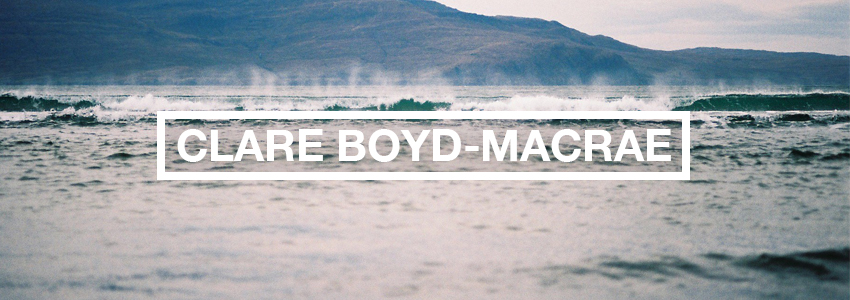 Tuesday, September 11, 2012 at 03:24PM
Tuesday, September 11, 2012 at 03:24PM Partly, I suspect, this is a personality thing, partly something to do with gender. Partly, it is the result of my having grown up in several different continents; when I was a child I took on the accents of wherever I happened to be - India, Belfast, England eventually Australia. The fact is that, when we are traveling, he is just himself, no matter where we are and who we're with. Whereas I feel like a chameleon.
Immediately we land in, say, England, I adjust my accent accordingly. He says he does this as well, which is true, but it's a simple matter of speaking a little more clearly so that he can be understood. For me but it's a case of involuntarily imitating the people I am with and I do it instinctively, without thinking. My intonation and the phrases and words I use change. When I am in Scotland, I start using words like wee, in the sense of little. In England I say urm instead of umm, and have a different intonation when I ask questions. In Belfast, with my local cousins, I start doing that sing-songy Belfast thing they do there, not just with every sentence but with every phrase. When I'm in Gujarat I start speaking a kind of pigeon English-Gujarati so naturally I surprise even myself. And then I hear myself, in these foreign places, speaking in this odd way and feel a bit silly.
I have been especially aware of this tendency these last few days, when we have been with friends in Dublin. We stayed with them last in 1983-84, when we shared their house - the same house they have now - for a year while my husband did his masters and I earned a pittance as a night nurse and managed to keep the wolf from the door
So the last time I spent much time with them, I was a childless and rather naive 25 year old. They were 10 and 25 years older than me, and to say that I was dazzled by what I saw as their sophistication would be an understatement. I was smitten with the whole family - both parents and their three little girls, who are all now the age their mother was then, with children of their own.
Put me back with these people, and I am instantly an awkward, tense young woman, outwardly poised maybe, but inside a mass of contradictions, resentments and insecurities, gauche and ignorant.
I suspect many people revert to certain types of behavior when they are back, say in the bosom of their family of origin. A capable professional woman becomes a naughty little sister again, or an emotionally intelligent man the slight boor he was at 17. Be that as it may, I would love to be just a little more like my husband, just relaxed being myself, wherever I am and whoever I'm with. And I suppose accepting that I'm not like that could be the first step on being more secure, wherever in the world I find myself.
 Clare |
Clare |  Post a Comment |
Post a Comment | 